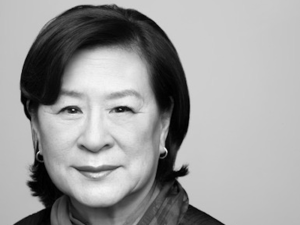Presented By: Institute for the Humanities
CANCELLED! The Chinese Question: Diasporic Histories and Global Politics of Race with Mae Ngai
A (Re)Emergence: Asian American Histories and Futures event

THIS EVENT HAS BEEN CANCELLED AND WILL BE RESCHEDULED IN 2025.
The Chinese Question is about the origins of Chinese diasporic communities in the West; the rise of the racist movements and exclusion legislation passed against them; and the struggles of the Chinese emigrants for respect and equal treatment, as well as China itself, in the international community. Chinese exclusion policies across the Anglo-American world showed the importance of domestic racism in the formation of nation-state identities. At another level, they were also integral to the development of the late nineteenth-century ascent of Great Britain and the U.S. as global economic hegemons, as creditors and as colonizers, as nation builders, and as empire builders. Because China was never formally colonized, the Western powers imposed unequal treaties and exclusion laws as instruments of colonialism and containment. Exclusion policies were integral dynamics of colonialism and capitalism; part of a new way of imagining, organizing, and governing the world.
Mae M. Ngai is Lung Family Professor of Asian American Studies and Professor of History, and Co-Director of the Center for the Study of Ethnicity and Race at Columbia University.
The Chinese Question is about the origins of Chinese diasporic communities in the West; the rise of the racist movements and exclusion legislation passed against them; and the struggles of the Chinese emigrants for respect and equal treatment, as well as China itself, in the international community. Chinese exclusion policies across the Anglo-American world showed the importance of domestic racism in the formation of nation-state identities. At another level, they were also integral to the development of the late nineteenth-century ascent of Great Britain and the U.S. as global economic hegemons, as creditors and as colonizers, as nation builders, and as empire builders. Because China was never formally colonized, the Western powers imposed unequal treaties and exclusion laws as instruments of colonialism and containment. Exclusion policies were integral dynamics of colonialism and capitalism; part of a new way of imagining, organizing, and governing the world.
Mae M. Ngai is Lung Family Professor of Asian American Studies and Professor of History, and Co-Director of the Center for the Study of Ethnicity and Race at Columbia University.